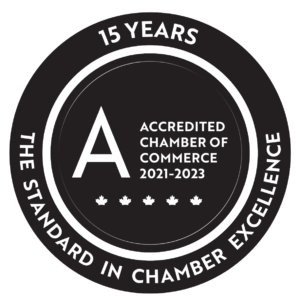TORONTO — In response to evolving data around the transmissibility of the Delta variant, the Ontario government, in consultation with the Chief Medical Officer of Health is expanding eligibility for third doses of the COVID-19 vaccine to additional groups that face the highest risk of serious illness from the virus. This decision aligns with evidence and recommendations provided by the National Advisory Committee on Immunization (NACI).
A complete two-dose COVID-19 vaccine series provides strong protection against COVID-19 infection and severe outcomes, including against the Delta variant, in the general population. Third doses are being offered to specific high-risk groups to help provide sufficient protection based on a suboptimal or waning immune response to vaccines and increased risk of COVID-19 infection.
Based on the recommendation of the Chief Medical Officer of Health and in alignment with NACI’s recommendation, the province will begin offering third doses of the COVID-19 vaccine to additional vulnerable populations:
- Those undergoing active treatment for solid tumors;
- Those who are in receipt of chimeric antigen receptor (CAR)-T-cell;
- Those with moderate or severe primary immunodeficiency (e.g., DiGeorge syndrome, Wiskott-Aldrich syndrome);
- Stage 3 or advanced untreated HIV infection and those with acquired immunodeficiency syndrome; and
- Those undergoing active treatment with the following categories of immunosuppressive therapies: anti-B cell therapies (monoclonal antibodies targeting CD19, CD20 and CD22), high-dose systemic corticosteroids, alkylating agents, antimetabolites, or tumor-necrosis factor (TNF) inhibitors and other biologic agents that are significantly immunosuppressive.
Individuals in these groups can receive their third dose at a recommended interval of eight weeks following their second dose and will be contacted by their health care provider such as their primary care provider, specialist, or their hospital specialty program when they are eligible to receive the vaccine.
Locations and timing for third doses may vary by public health unit and high-risk population based on local planning and considerations, with third doses mainly to be administered at transplant clinics and cancer clinics.
This expanded eligibility supplements the government’s previous decision to offer third doses of the COVID-19 vaccine to select vulnerable populations:
- Transplant recipients (including solid organ transplant and hematopoietic stem cell transplants);
- Patients with hematological cancers (examples include lymphoma, myeloma, leukemia) on active treatment (chemotherapy, targeted therapies, immunotherapy);
- Recipients of an anti-CD20 agent (e.g. rituximab, ocrelizumab, ofatumumab); and
- Residents of high-risk congregate settings including long-term care homes, higher-risk licensed retirement homes and First Nations elder care lodges.
Immunocompromised individuals with one of the eligible conditions will be contacted by their health care provider to confirm their eligibility and provide them with a referral to an available vaccine delivery channel such as a hospital, pharmacy, or primary care provider. Please be patient as it may take time for health care providers to reach out to all eligible individuals. Please do not contact your health care provider directly. For residents of high-risk congregate settings including long-term care homes, higher-risk licensed retirement homes and First Nations elder care lodges, third doses will be offered in their residence (either within the home or through a mobile clinic).
If you have questions about your eligibility, please contact the Provincial Vaccine Contact Centre at 1-833-943-3900, which is open Monday to Sunday from 8 a.m. to 8 p.m. and capable of providing assistance in 300 languages.




